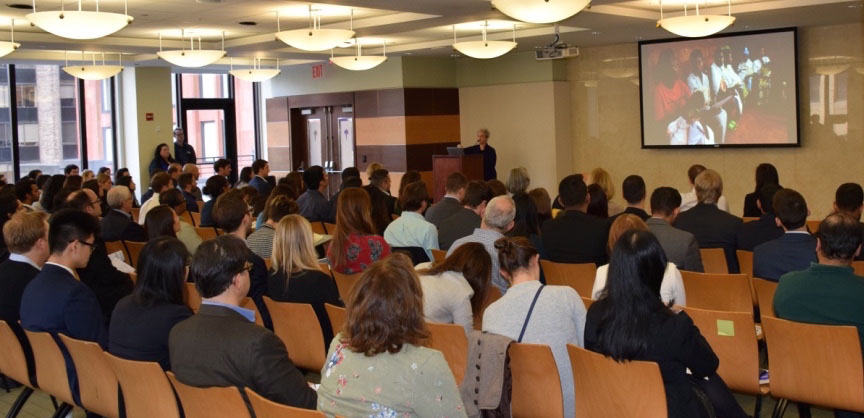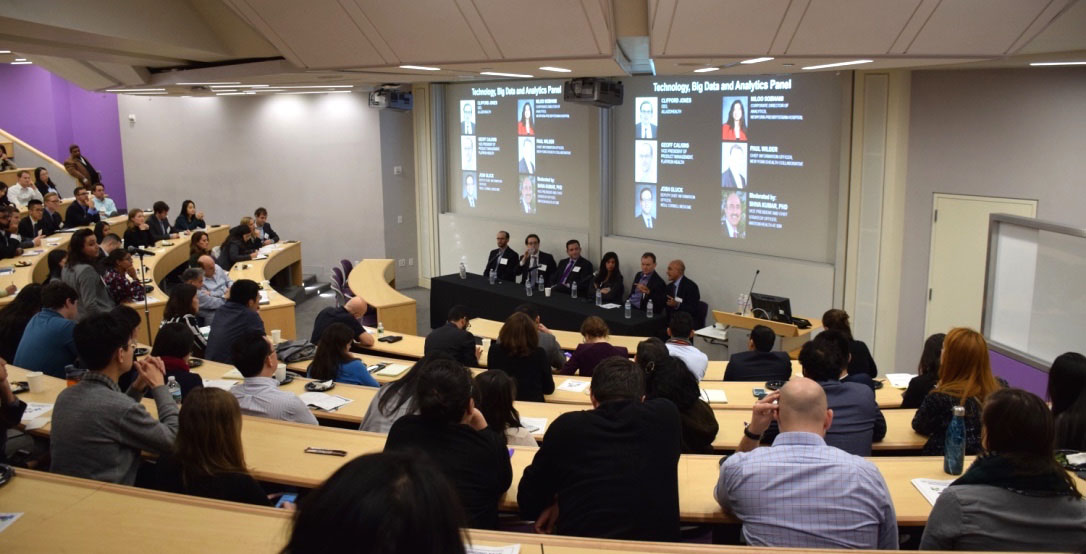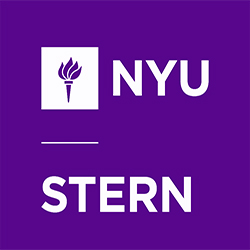This time I have with me my friend and fellow Graduate Ambassador Kyle Boutin, who is our resident Healthcare expert and Co-President of the Stern Healthcare Association (SHA). Kyle and I got to know each other after teaming up with a handful of others to put together Preview Weekend for admitted students last Spring—and now we’re glad to be working together again as Graduate Ambassadors! Kyle hails from outside Boston and was a research engineer for Reactive Innovations, a small chemical engineering research and development firm where he performed electrochemistry research for NASA, the National Institutes of Health, and the Department of Defense. Kyle interned at Pfizer this past summer as a Procurement Associate in their Worldwide Medical and R&D division, and he will be returning there full-time after graduation.
Here’s what he had to say:
Thanks for joining me, Kyle! As someone interested in healthcare, what was attractive to you about Stern?
It was two large factors. First, I wanted to build a strong foundation in finance, and Stern obviously has a strong finance curriculum. I came to school wanting to learn the right way to develop business, and to do that I think understanding how your decisions flow through your financial statements is critical. Even though I was interested more in strategy and operations than in corporate finance, I felt that having these strong finance skills would give me an edge when recruiting at pharmaceutical, medical device, and biotech companies.
Second, when it comes to MBA recruiting, healthcare is a newer industry than consulting or investment banking. Since the opportunities available to students in the healthcare and pharmaceutical industries are not necessarily acquired through on-campus recruiting, I wanted to be in a city that had as many recruiting opportunities as possible. For that, there’s no better place in the world than New York City because it’s a hotbed for corporate recruiters. There’s a lot of companies that thrive here—Pfizer, Johnson & Johnson, Bayer, BMS, Boehringer Ingelheim, Celgene, Stryker, Medtronic, Genentech, Amgen, and so on. So you can find opportunities, on-campus and throughout the city, and I thought if I could have two bites at the apple, I would have a better shot at getting my dream job.

Can you elaborate on the sort of interactions that you and others at Stern have had with these companies?
MBA healthcare recruiting is pretty new, but I think the pharmaceutical companies are actually really involved, so we have a lot of them visiting us here on campus. Pfizer, Bristol Myers Squibb, the ones I named before, they’re all here and they all come to events. It’s more structured for them. As you go to more payer/provider, hospital administration, they post listings here, but hospitals still recruit MPHs and MPPs, so there’s competition there. Private insurance companies are starting to become more popular because of the Affordable Care Act (ACA) regulations that have created competition for large public insurance companies, so they’re trying to infuse new talent, but they appear later on the recruiting timeline. I say that medical device and biotech are a little between both in that you have some large cap companies that are able to compete with pharmaceutical companies, and then you have some smaller ones where you have to do a little bit more legwork because their ROI from recruiting on campus for maybe one position is just not worth it for them. So they’ll post on a board, or they’ll go to recruiting events in the city. And the Office of Career Development (OCD) is awesome in alerting you to these opportunities and keeping that information in their databases so that you can reach out to them, but you have to do the outreach so that you get on their radar.
Full disclosure: Kyle is also a Graduate Fellow for the Office of Career Development because he’s an all-star. Care to comment on that, Kyle?
Only that it’s not true! Everyone at Stern is as involved as I am. It’s one on the things I love about Stern!
Spoken like a true Graduate Ambassador. Back to healthcare, what was the recruiting process like for you?
I applied to 12 different firms—six on campus, six off. I would say that’s a pretty common split for someone recruiting for healthcare outside of healthcare consulting. If you’re doing consulting, you can do 100 percent on campus. You can find plenty of good opportunities in strategy and operations, business development at Stern too. Off campus, there are smaller companies that post on the job boards, smaller companies that reach out to the Stern Healthcare Association (SHA) that we post in our newsletter that require students to reach out. If you’re looking for something at a smaller size healthcare company, we would probably have more people contacting SHA directly that we could direct your way.
How does the Stern Healthcare Association (SHA) play a role in students’ career development?
SHA can be a really good resource for students. Something amazing about Stern is that we’re really collaborative and good about passing information and connections from MBA2s to MBA1s year over year. I’m President of SHA, and one of my initiatives is for us to establish an alumni list, so we are tracking alumni from years back so we can get a better off-campus recruiting baseline. So if someone is interested in a position, we have several people to reach out to.
Another awesome thing we do is our healthcare conference. Every year we have companies coming from all over to network at our conference. Last year we were 175 people, and we’re going to break 200 this year, so we’re really increasing our presence in the industry through this platform. We’re really putting ourselves at the forefront, and we’re really growing our membership.

Switching gears a little, what sort of classes are available for students interested in healthcare?
We’re actually making great headway in this. We offer five electives in healthcare. One that’s popular is Topics in Investments: Financial Analysis in Healthcare. We’re also doing a new course this year called Healthcare Markets, which focuses on the economics of the healthcare industry, and I’m really excited about that one. I’ve sat down with the professor of the course—he’s brilliant, and he’s done most of his research on pharmaceutical pricing and health insurance. I think what he’s planning on doing is lecturing on the drivers in each industry in healthcare, because they’re vastly different, and he’ll also invite guest speakers to class. There are two other courses called The Business of Health and Medical Care and Economic Transformation of Healthcare, which are industry overview courses, less in depth than Healthcare Markets, and then there’s a fifth course called Pharmaceutical Marketing (Innovation in Pharmaceutical/Bio Technology). This one is more an “innovations in healthcare” course, but pharmaceutical marketing is so important to the topic because educating the public and raising awareness about innovation is essential to having the market accept the product and necessary for gaining market share. Pharmaceutical marketing and innovation are highly linked.
Those are just Stern classes. You’re also free to take 25 percent of your courses outside of Stern at other NYU schools. For example, there are ACA policy courses you can take at the law school. If you’re interested in payer/provider, the med school does a drug development class that some of our MD/MBAs have taken and said is interesting, and it’s more business-related than technical. Lastly, Wagner [School of Public Service and Policy] has a very good healthcare program, and we partner with the Wagner healthcare network often. Their dean is one of the chief architects of the ACA as well, and she set the curriculum for the healthcare management courses they offer. These courses focus more on hospital and payer/provider systems.
There you have it, from the resident expert on healthcare himself. Thanks so much, Kyle!
Sternspective is a series of interviews with Sternies about the diverse paths they are taking in the classroom and beyond. Check out our previous posts about Stern Signature Projects and Marketing.
